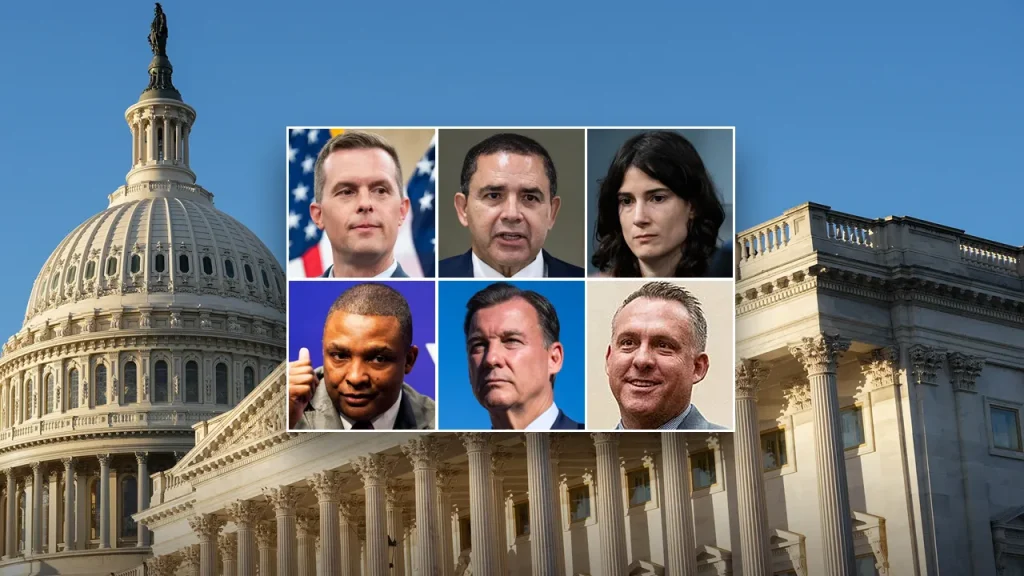House Democrats Defy Party Lines to End Government Shutdown
In a rare display of bipartisan action, six House Democrats broke ranks with their party leadership to help end the longest government shutdown in U.S. history. Representatives Marie Gluesenkamp Perez, Jared Golden, Adam Gray, Don Davis, Henry Cuellar, and Tom Suozzi joined forces with Republicans to pass legislation that reopened the government with a 222-209 vote. President Donald Trump subsequently signed the bill late Wednesday night, bringing relief to millions of Americans affected by the prolonged impasse. The decision by these Democratic lawmakers highlights the growing frustration with partisan gridlock in Washington and represents their prioritization of constituent needs over party loyalty.
“The last several weeks have been a case study in why most Americans can’t stand Congress,” declared Rep. Marie Gluesenkamp Perez in a pointed statement on social media. Her sentiment captures the widespread public disillusionment with political brinksmanship in Washington. “Americans can’t afford for their Representatives to get so caught up in landing a partisan win that they abandon their obligation to come together to solve the urgent problems that our nation faces,” she continued, giving voice to the practical concerns of everyday Americans caught in the crossfire of political battles. For Gluesenkamp Perez, the choice was clear—her constituents’ immediate needs outweighed any “ambiguous D.C. beltway ‘messaging victory'” that might have been gained by continuing to hold the line with her party.
The legislation these lawmakers supported keeps the government funded at current levels through January 30, providing breathing room for Congress to develop a more comprehensive appropriations measure for fiscal year 2026. Crucially, it also secures funding for the Supplemental Nutrition Assistance Program (SNAP) through September, protecting a vital lifeline that more than 42 million Americans depend on for basic food security. Rep. Adam Gray emphasized this point in his statement, saying, “No parent should have to choose between feeding their children and keeping the lights on because someone in Washington thinks chaos is a negotiating tactic.” His words reflect the moral urgency that drove these lawmakers to break with party discipline—the recognition that political games have real consequences for vulnerable families.
The decision to cross party lines wasn’t taken lightly by these representatives, many of whom represent competitive districts where pragmatism is valued over partisan purity. Rep. Don Davis explained that he voted to reopen the government “to support my constituents, alleviate the suffering of our families as the holidays approach, and bring vital resources to eastern North Carolina.” Similarly, Rep. Henry Cuellar highlighted the importance of governmental stability for border communities, where “so many families depend on federal agencies to keep trade, travel and public safety moving.” Their statements reveal a common thread—a commitment to place-based representation that prioritizes local needs over national party strategy, particularly when the well-being of their constituents hangs in the balance.
Looking beyond the immediate crisis, several of these lawmakers are pushing for further bipartisan action on healthcare affordability. Rep. Jared Golden urged that “Congress should take immediate action to extend expiring Affordable Care Act premium tax credits that keep health insurance plans affordable for millions of Americans.” Rep. Tom Suozzi echoed this sentiment, noting that if his Republican colleagues “are willing to work together to address this health insurance affordability crisis by extending the premium tax credits, then we will have accomplished something meaningful.” Their focus on next steps demonstrates a forward-thinking approach to governance that seeks to build on this moment of cooperation rather than retreating back to partisan trenches.
The shutdown’s resolution through this rare show of cross-party cooperation raises important questions about the future of American politics. Can lawmakers sustain this spirit of pragmatism in the face of intense partisan pressures? Will voters reward representatives who prioritize practical governance over ideological purity? The actions of these six Democrats suggest there remains a path—however narrow—for elected officials to work across the aisle when the stakes are high enough. As Rep. Gluesenkamp Perez put it, none of her constituents who rely on SNAP “would want to trade their dinner for an ambiguous D.C. beltway ‘messaging victory.'” In that simple truth lies a powerful reminder of what governance should ultimately be about—improving the lives of the people representatives are elected to serve, not scoring political points in a never-ending partisan game.














